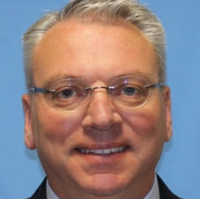
Porter
PHILADELPHIA - Keeping opioid addicts from dying is possibly a protected religious activity, a federal appeals court has ruled in the case of a Philadelphia group that encourages supervised drug use.
The U.S. Court of Appeals for the Third Circuit on July 24 stopped the Department of Justice from arguing the nonprofit Safehouse is not protected under the federal Religious Freedom Restoration Act because its corporate documents do not bind it to a religious purpose.
Safehouse, for its part, argued keeping people alive is a big part of religious principles. The U.S. Supreme Court held in 2014 corporations like Hobby Lobby could be exempt from a requirement to provide certain forms of contraception based on religious beliefs.
"The district court thus erred in determining Safehouse can never qualify for the protections of (the Religious Freedom Restoration Act) because it is a non-religious entity," Third Circuit judge David Porter wrote.
"The district court properly recognized that 'corporations can be considered persons.' But it improperly asked whether Safehouse is a 'religious entity,' focusing on statements in Safehouse's incorporating documents, its website, in its application for tax-exempt status and aspects of Pennsylvania corporate law."
Safehouse started in 2018 to stop opioid overdoses. It oversees illegal drug use with a stock of Narcan and provides sterile syringes, while also testing drugs for fentanyl.
Drug users conduct their business in a "consumption room" overseen by Safehouse. This ruffled the feathers of the U.S. Department of Justice in 2019, which went to court to show supervised illegal drug use violates laws regarding drug-involved premises.
Safehouse is fighting for protection under RFRA and the Free Exercise Clause of the First Amendment. Its board members' shared religious belief in the value of human life is part of what drives its mission, Safehouse says.
The DOJ said there was no mention in RFRA of protecting non-religious entities.
"It asks us to conclude the plain text of a statute does not reach what Congress did not enumerate in the several Congressional reports generated during the legislative process," Porter wrote.
"We decline to draw that inference. If an entity reasonably fits within the statutory language, it is of no moment that Congress did not name it in the legislative history."
The case now moves back to the district court to determine if Safehouse has RFRA protections, no matter whether it is determined to be a "religious entity."


